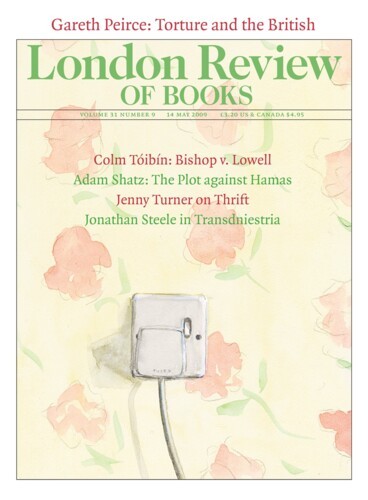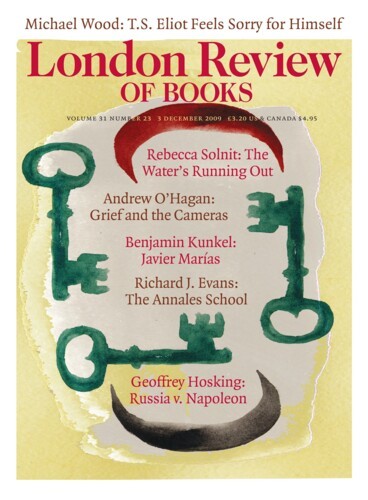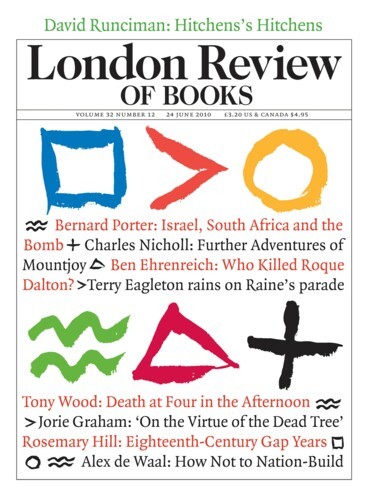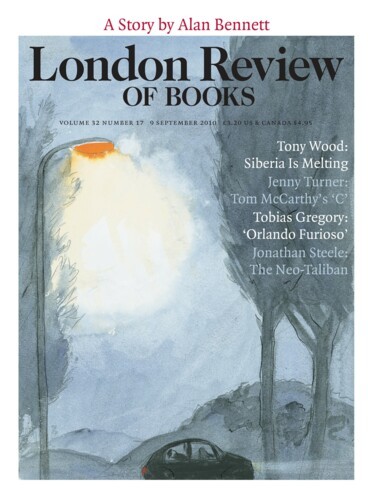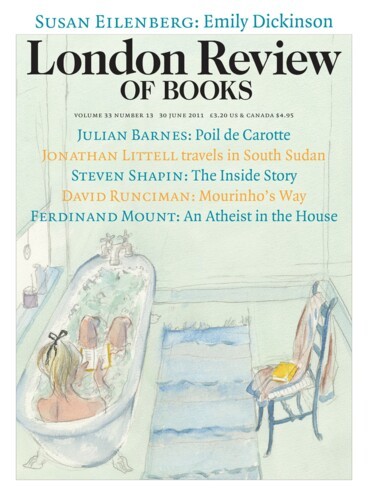The corridor we are standing in bristles with ice. Thick layers of what turn out, on closer inspection, to be delicate, hexagonal crystals line the walls and ceiling. I and a handful of other visitors are in the basement laboratory of the Permafrost Institute in Yakutsk; according to the red numbers of an LED panel, the temperature is −8 °C. After a few minutes, our presence – breathing, talking – has raised the temperature to −7 °C, and we are ushered back to the surface, where it is 35 °C, a day of dazzling Arctic sunshine and heat that makes the skin prickle. Here, as elsewhere in Russia, it has been a searing summer, turning large swathes of the landscape into kindling. The apocalyptic scenes in European Russia – thousands burned out of their homes, millions of hectares of crops destroyed, Moscow wreathed in smoke from smouldering peat bogs – have dominated news reports. But vast areas of the Far Eastern Federal District were damaged too.
The corridor we are standing in bristles with ice. Thick layers of what turn out, on closer inspection, to be delicate, hexagonal crystals line the walls and ceiling. I and a handful of other...
